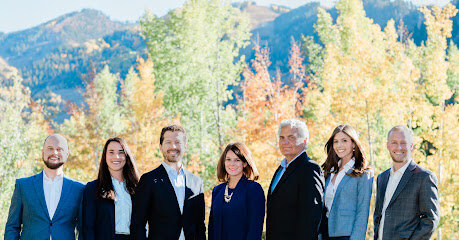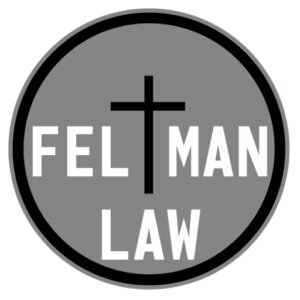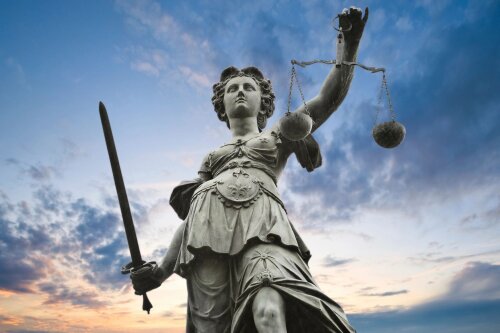Best Same Sex & LGBT Lawyers in Colorado
Share your needs with us, get contacted by law firms.
Free. Takes 2 min.
Free Guide to Hiring a Family Lawyer
Or refine your search by selecting a city:
List of the best lawyers in Colorado, United States
About Same Sex & LGBT Law in Colorado, United States
Same sex and LGBT law in Colorado provides comprehensive protections and rights for individuals who identify as lesbian, gay, bisexual, transgender, or queer. Colorado is recognized for its progressive stance on LGBT rights, offering legal protections in areas such as marriage, employment, housing, public accommodations, and adoption. Since the legalization of same sex marriage across the United States in 2015, Colorado has built a robust framework aimed at preventing discrimination and promoting equality for its LGBT residents. However, navigating the specific legal rights and obligations can still be complex, leading many individuals to seek professional legal advice.
Why You May Need a Lawyer
There are various reasons why individuals may need legal assistance related to same sex and LGBT matters in Colorado. Common situations include:
- Facing discrimination at work, in housing, or in public places due to sexual orientation or gender identity
- Dealing with family law matters such as marriage, divorce, adoption, or parental rights involving same sex couples or transgender individuals
- Addressing issues related to name and gender marker changes on identification documents
- Handling estate planning concerns that uniquely affect LGBT couples
- Navigating healthcare rights, including those related to gender transition or healthcare proxies
- Seeking asylum or immigration assistance based on LGBT status
- Responding to instances of harassment, violence, or hate crimes related to sexual orientation or gender identity
Oftentimes, state and federal laws interact in ways that make legal matters more complicated for the LGBT community. Consulting a lawyer who understands both the law and the unique challenges facing LGBT individuals can be crucial for protecting your rights.
Local Laws Overview
Colorado law explicitly protects individuals from discrimination based on sexual orientation and gender identity. Key aspects of local laws include:
- Anti-Discrimination Protections: State law forbids discrimination in employment, housing, and public accommodations.
- Marriage and Civil Unions: Same sex marriage is legal and treated equally to opposite sex marriage under state law.
- Adoption and Parenting: LGBT individuals and couples can adopt children and have parental rights recognized.
- Gender Marker and Name Changes: Transgender individuals can update the gender markers and names on most official state documents, including driver’s licenses and birth certificates, with streamlined legal processes.
- Hate Crime Laws: Colorado law enhances penalties for crimes committed due to the victim’s sexual orientation or gender identity.
- Education: State laws require schools to address bullying based on sexual orientation or gender identity.
Local governments within Colorado, such as Denver and Boulder, may also provide additional protections, so it is important to consider both state and municipal regulations.
Frequently Asked Questions
Is same sex marriage legal in Colorado?
Yes. Colorado recognizes same sex marriages with the same rights and benefits as opposite sex marriages.
Are employers allowed to discriminate based on sexual orientation or gender identity?
No. State law prohibits discrimination in employment based on sexual orientation and gender identity.
Can same sex couples adopt children in Colorado?
Yes. Same sex couples have the same adoption rights as opposite sex couples in Colorado.
What steps should I take to change my gender marker on official documents?
You typically file a petition with the court, provide medical documentation if needed, and then update your records with relevant state agencies. Legal advice can help ensure a smooth process.
Does Colorado have hate crime laws that protect LGBT individuals?
Yes. Hate crime laws in Colorado specifically include crimes motivated by sexual orientation or gender identity.
What should I do if I face discrimination as an LGBT individual?
You can file a complaint with the Colorado Civil Rights Division or seek assistance from a qualified attorney to understand your options.
Are there protections for LGBT students in schools?
Yes. State law requires schools to have policies addressing bullying and discrimination based on sexual orientation and gender identity.
Does Colorado recognize civil unions?
Yes. In addition to marriage, Colorado recognizes civil unions and provides legal benefits to couples in such unions.
Can transgender individuals access gender-affirming health care in Colorado?
Yes. Health care providers cannot deny medically necessary care based on gender identity under state law and regulations.
Do religious organizations have exemptions from anti-discrimination laws?
Some religious institutions may have limited exemptions regarding certain activities, but these do not generally apply to public accommodations, housing, or non-religious employment.
Additional Resources
If you need further assistance, consider reaching out to these resources:
- Colorado Civil Rights Division - For discrimination complaints and resources
- One Colorado - The state’s leading LGBT advocacy organization, offering support and policy information
- Lambda Legal - A national organization specializing in LGBT legal issues, with resources specific to Colorado
- GLBT Community Center of Colorado (The Center on Colfax) - Provides social, health, legal, and educational support
- Colorado Legal Services - Offers legal help for low-income individuals, including LGBT-specific issues
Next Steps
If you believe you need legal assistance for a same sex or LGBT related issue in Colorado, consider taking the following steps:
- Document your situation, including dates, names, and details of any incidents
- Gather relevant documents, such as contracts, emails, or official paperwork
- Reach out to a qualified attorney with experience in LGBT law for an initial consultation
- Contact the Colorado Civil Rights Division if you need to file a formal complaint
- Explore support groups or advocacy organizations for community guidance if you have immediate concerns
Taking prompt action can protect your rights, help you navigate legal complexities, and connect you to support systems. Remember, specialized legal counsel can make a significant difference in the resolution of your issue.
Lawzana helps you find the best lawyers and law firms in Colorado through a curated and pre-screened list of qualified legal professionals. Our platform offers rankings and detailed profiles of attorneys and law firms, allowing you to compare based on practice areas, including Same Sex & LGBT, experience, and client feedback.
Each profile includes a description of the firm's areas of practice, client reviews, team members and partners, year of establishment, spoken languages, office locations, contact information, social media presence, and any published articles or resources. Most firms on our platform speak English and are experienced in both local and international legal matters.
Get a quote from top-rated law firms in Colorado, United States — quickly, securely, and without unnecessary hassle.
Disclaimer:
The information provided on this page is for general informational purposes only and does not constitute legal advice. While we strive to ensure the accuracy and relevance of the content, legal information may change over time, and interpretations of the law can vary. You should always consult with a qualified legal professional for advice specific to your situation.
We disclaim all liability for actions taken or not taken based on the content of this page. If you believe any information is incorrect or outdated, please contact us, and we will review and update it where appropriate.
Browse same sex & lgbt law firms by city in Colorado
Refine your search by selecting a city.











